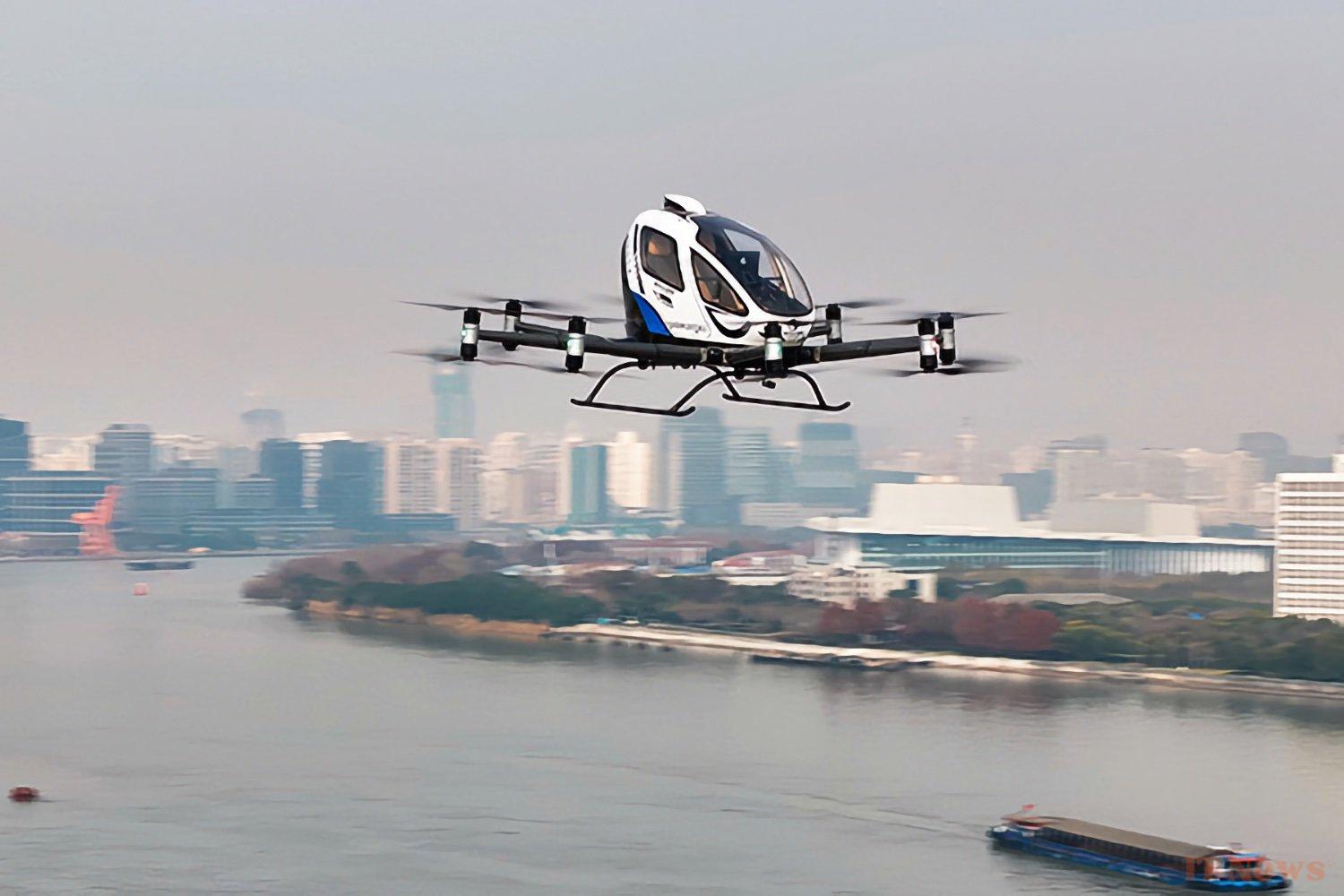It's a first in China, and in the world: the EH216-S, a small electric unmanned aircraft from Ehang, has received an official operating certificate. In other words, the aircraft is now authorized to carry human passengers without anyone holding the control stick on board. The Civil Aviation Administration of China (CAAC) has given the green light, but only for well-supervised flights.
First flights for curious tourists
In concrete terms, the first passengers will be entitled to a short flight in the air, to Guangzhou and Hefei, on fixed, looped routes. No Uber Air-style flying taxis for now, just 3- to 10-minute sightseeing flights. No need for a helmet or parachute, assures Ehang. "It will be like taking a car," summarizes He Tianxing, the company's vice president.
The aircraft in question, the EH216-S, is a two-seater electric plane equipped with 16 propellers. It can reach speeds of 130 km/h and cover up to 30 kilometers. It flies on its own, with a predefined flight plan, and is monitored The aircraft is remotely monitored by a control center that can intervene in the event of a problem. The aircraft is equipped with LIDAR sensors to avoid obstacles and adapt to live weather conditions.
Even though Ehang is ahead of other players in the sector, daily journeys by flying taxi are not coming soon. According to He Tianxing, it will take another three to five years before regular services, particularly for commuting, are available. New permits will first be required to move beyond the tourist sector.
In the meantime, Ehang plans to expand its tourist flights to other cities such as Shenzhen, Wenzhou, and Wuhan. The Chinese company also hopes to export abroad: since the certification announcement, it says it has received calls from several international partners.
China is pushing hard behind these projects, as part of what it calls the "low-altitude economy" - airspace below 1,000 meters. The goal: to boost an entire ecosystem ranging from delivery drones to air sports and flying taxis. According to a report by the Hurun Group, this market could be worth more than $200 billion next year.
But competition is not far behind. In Dubai and Abu Dhabi, American startups Joby and Archer also want to launch their air taxis this year, with a pilot on board. Big names in aeronautics like Airbus, Boeing, and Embraer also have projects in the pipeline. In short, the skies are opening for these vehicles of the future. But to use them as a simple VTC, we'll have to wait a little longer.



0 Comments